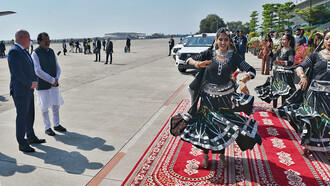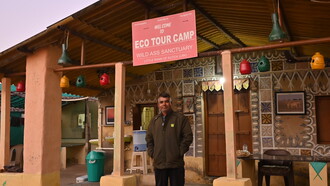In a world where economic systems are increasingly skewed toward the benefit of the ultra-wealthy, Australia’s young people are beginning to reconsider the value and purpose of the race they were born into. Once promised the fruits of hard work, many now find themselves disillusioned, struggling to make rent, let alone envision home ownership or career satisfaction.
The story of this generation is not one of laziness or entitlement, but one of disenfranchisement. The rat race hasn't been won or lost, it is being rejected outright at large. Australian youth are more educated than ever before, yet many feel that their degrees offer no clear pathway to financial stability or fulfillment. The rising cost of living, paired with stagnant wages and increasingly casualised employment, has driven a wedge between effort and reward. According to the Australian Bureau of Statistics, real wages for young Australians have barely budged over the last two decades, while house prices have soared out of reach.
In 2000, the average house price in Sydney was around $233,000. Today, it is over $1.1 million (a nearly fivefold increase). Meanwhile, wage growth has not even doubled in that same period. Purchasing power has steadily eroded, particularly among the under-35 demographic. A report from the Reserve Bank of Australia shows that young adults today are far less likely to own property, and far more likely to rent well into their thirties and beyond. Home ownership, once a cornerstone of adult life, now resembles an increasingly distant dream for many.
Data from CoreLogic reveals that in 2024, first-home buyer activity dropped to a 30-year low in some parts of the country, driven not only by cost but by sheer hopelessness. This economic disparity is not just about housing: it's a lifestyle trap. The notion of “success” administered by previous generations, steady job, mortgage, retirement plan… It all seems irrelevant or even laughable in a landscape dominated by short-term contracts, gig work, and unaffordable rents. It is absolutely no wonder, then, that many young people are being less quiet and reserved about opting out of this exhausting hamsterwheel.
Burnout has become more than a buzzword; it’s a cultural diagnosis. According to a 2023 study by the Black Dog Institute, 52% of Australians aged 18–29 reported feeling “extremely fatigued by work” and nearly 1 in 3 reported symptoms of clinical anxiety. Meanwhile, the traditional solutions like therapy, resilience workshops, online productivity tools, all feel like Band-Aids slapped over deep societal wounds.
Young people aren’t just tired; they’re disillusioned. Many are now choosing part-time work, low-responsibility roles, or pursuing creative outlets not for fame, but simply as a rejection of what they see as a broken system. This cultural shift has been reflected in trends like “quiet quitting,” the refusal to go above and beyond in workplaces that don’t reciprocate that loyalty.
Some critics dismiss this as apathy or laziness, but the reality is far more nuanced. As one Melbourne university student put it in a recent ABC News interview: “Why should I push myself to the brink for a job that doesn’t pay me fairly or care about my wellbeing?”The deeper concern here is not just economic inequality, but existential crisis. The post-9/11, post-GFC, post-pandemic generation has lived through climate anxiety, housing insecurity, rising global conflict, and the creeping threat of automation. The future is not a wide-open road, it feels like a wall too strong to break and too tall to climb.
There’s also a growing suspicion that the game itself is rigged. In a world where billionaires build rockets and bunker down in luxury compounds, many young Australians feel that their role is not to flourish, but to serve as employees, content producers, brand evangelists, and consumers. It’s not a conspiracy theory so much as a bitter observation: the ultra-rich benefit from a distracted and overworked population. The idea that this system sees average people as "rats" there to race, but never win; this notion may be cynical, but it resonates deeply with today’s youth.
All that the youth wants is what their parents could afford them, to have a family and a house all their own. Jobs that keep you onboard for 30 consecutive years? Apparently that’s a fairytale from another time, told to the rats to help them sleep. This is not to say hope is gone. Many young people are forging new paths.
They are rejecting outdated metrics of success, seeking purpose over profit, and community over competition. From co-living spaces and mutual aid groups to solo entrepreneurship and minimalist lifestyles, today’s youth are redefining the very meaning of a good life. Social media, often blamed for causing dissatisfaction, has paradoxically become a source of solidarity, education, and inspiration. Movements like “anti-work,” “degrowth,” and “financial minimalism” are on the rise not because young people are lazy, but because they take themselves more seriously than many workplaces do.
Respect and a livable income from one full time job must be paid, and people are being asked to compete or beg for this: disgusting. The rats have stopped racing because they’ve realized the race wasn’t designed for them to win. The point was never to cross the finish line, it was to keep running. But what happens when an entire generation lays down the baton and says, “No more”?
That’s the question Australia must now face. Will the country adapt to a new reality in which work-life balance, fair wages, and social equity are demanded, not politely requested? Or will it continue to reward the few while sidelining the many? Young Australians are done pretending. They are no longer interested in running someone else’s race. What they want is simple, yet radical: dignity, balance, and a future worth looking forward to.
Notes
The year Australians will finally get a decent pay rise,Tarric Brooker, 2024.
Younger Australians feel like the game is rigged. And with the spending gap widening, who can blame them?, Chowdhury, 2024.















